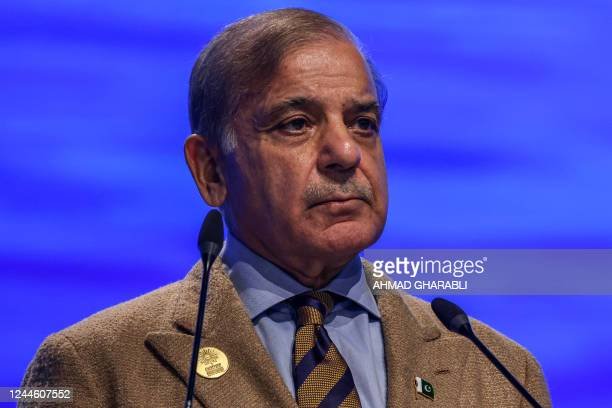The recent arrest of Pakistan’s Prime Minister Imran Khan has sparked controversy and criticism from his political opponents, particularly from former Prime Minister Shehbaz Sharif. Sharif has questioned the Supreme Court’s decision to grant relief to Khan, stating that the court’s “double standards” have led to the death of justice in the country.
Khan’s arrest came after he was accused of corruption in connection with the Al-Qadir Trust case. However, on Thursday, the Supreme Court declared his arrest “unlawful” and “invalid” and ordered his immediate release. The court’s decision has raised concerns about the independence and impartiality of the judiciary in Pakistan.
Sharif has accused the Supreme Court of being biased towards Khan, whom he referred to as the court’s “ladla” (favorite). He stated that the court’s decision to release Khan was evidence of its double standards, as it had previously shown a lack of leniency towards other politicians accused of corruption.
Sharif’s criticism of the court is not new, as he has been a vocal opponent of the judiciary since his own corruption cases were brought before the courts. He has accused the courts of being influenced by the government and of failing to uphold the rule of law.
The controversy surrounding Khan’s arrest and release highlights the political tensions and divisions in Pakistan. The country’s judiciary has been under scrutiny for its handling of corruption cases, particularly those involving politicians from opposition parties.
Critics have accused the government of using the National Accountability Bureau (NAB) to target opposition politicians, while ignoring corruption within its own ranks. The NAB has been accused of using its powers to harass and intimidate opposition figures, while going easy on those aligned with the ruling party.
The opposition has called for reforms to the NAB and the judiciary to ensure their independence and impartiality. They have also demanded an end to what they see as politically motivated arrests and prosecutions.
The government, on the other hand, has defended its anti-corruption efforts, stating that they are necessary to clean up the country’s political system. The ruling party has accused the opposition of trying to protect corrupt politicians and of obstructing efforts to hold them accountable.
The controversy surrounding Khan’s arrest and release is likely to continue, as both sides remain entrenched in their positions. The opposition will continue to demand reforms to the judiciary and the NAB, while the government will defend its anti-corruption efforts. The outcome of this struggle will have significant implications for the future of democracy and the rule of law in Pakistan.




